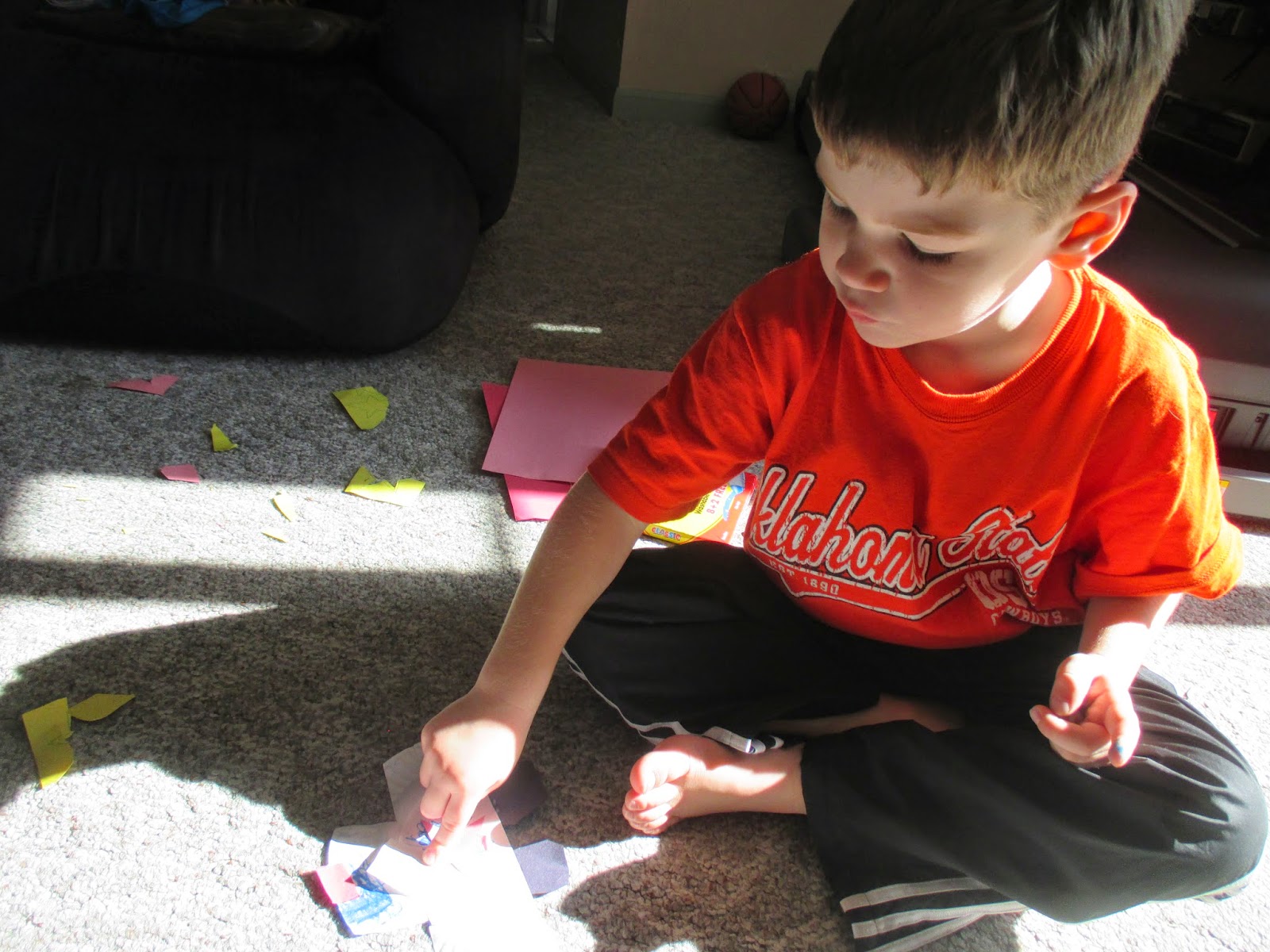Even though I’m not “officially” homeschooling yet (my son
misses the age cutoff and is not eligible for public kindergarten this year), I’m
doing it formally enough that it occasionally comes up in conversation, and people often ask
what it’s like to homeschool. Every homeschooler is different, so I can’t
answer that question in the broadest sense, but I can share what homeschooling is like for
us. Here’s an example of a typical homeschooling day for us.
My son is naturally very curious, so I try to develop
lessons based on what he’s interested in. Instead of having a separate math
lesson, reading lesson, writing practice, etc., I try to tie them all together
using something that he’s interested in. So I based this lesson on a police car
craft that I found on Pinterest.
I began by carefully writing out step by step
instructions:
- Color the car blue.
- Cut out 2 black circles.
- Cut out 2 white squares.
- Cut out 1 red rectangle.
- Cut out 1 yellow star.
I gave him a paper plate that had been cut into the general
shape of a car, a box of magic markers, a pair of scissors, a stack of
construction paper with the appropriate shapes drawn on, and the page
of directions.
I followed this lesson by asking him to draw each of the
shapes that he had cut out, and then had him figure out how to spell and write
out the name of one of those shapes with help from alphabet flash cards.
From there we moved on to reading a library book about
different kinds of vehicles (including police cars). As we read, we talked
about the difference between nouns and verbs, figuring out which words were “things”
(ambulance, policeman, siren, headlights) and which were “doing” words (drive,
stop, help, fly). After that, we watched a “Schoolhouse Rock” DVD, starting
with songs like “Verb: That’s What’s Happening” and “A Noun Is a Person, Place
or Thing,” then we moved on to a little American history with “The Shot Heard ‘Round
the World” and “The Great American Melting Pot” and a bit of math with “Elementary,
My Dear” and “Figure Eight,” all with appropriate discussion as we went along. And then we finished off the lesson by practicing
writing numbers with more help from flash cards and workbook pages.
The nicest part of home schooling is being able to set our
own pace and our own schedule. We can take breaks whenever one of us needs one
and plow through when we happen to be on a roll. If we find ourselves on an
interesting tangent, we can go with it instead of having to steer back to the
original topic. Sometimes we take a wiggle break because we feel like it;
sometimes we skip a boring book and find one that’s more exciting at the
moment; sometimes we scrap a lesson altogether and find something else that
works for us. Sometimes we get much more in depth than I'd anticipated and go two or three lessons at a time. If one of us is having a crabby morning, we can work on fun
projects like crafts or coloring or cooking, and work on the harder or less
interesting stuff after lunch when we’ve both gotten our second wind. Sometimes we "double-dip" by thinking of different kinds of ocean animals while we're swimming or practice walking like different kinds of animals while we're having a stretch break.
Making our own schedule also means we can be inspired by
anything and everything around us. At the grocery store, we talk about
nutrition, how plants grow, and where different fruits come from. We read the
signs at the end of each aisle and talk about why the foods are grouped
together the way they are. While we’re making brownies, we talk about the
different ways we can measure things and we practice reading and following
directions. In the car the other day, my son saw someone smoking a cigarette
and asked what it was, and it segued into a discussion of health, how we
breathe, and the meaning of the word “consequences”.
To quote John Dewey, “Education is not preparation for life;
education is life itself.” And, in turn, life itself is education.









No comments:
Post a Comment